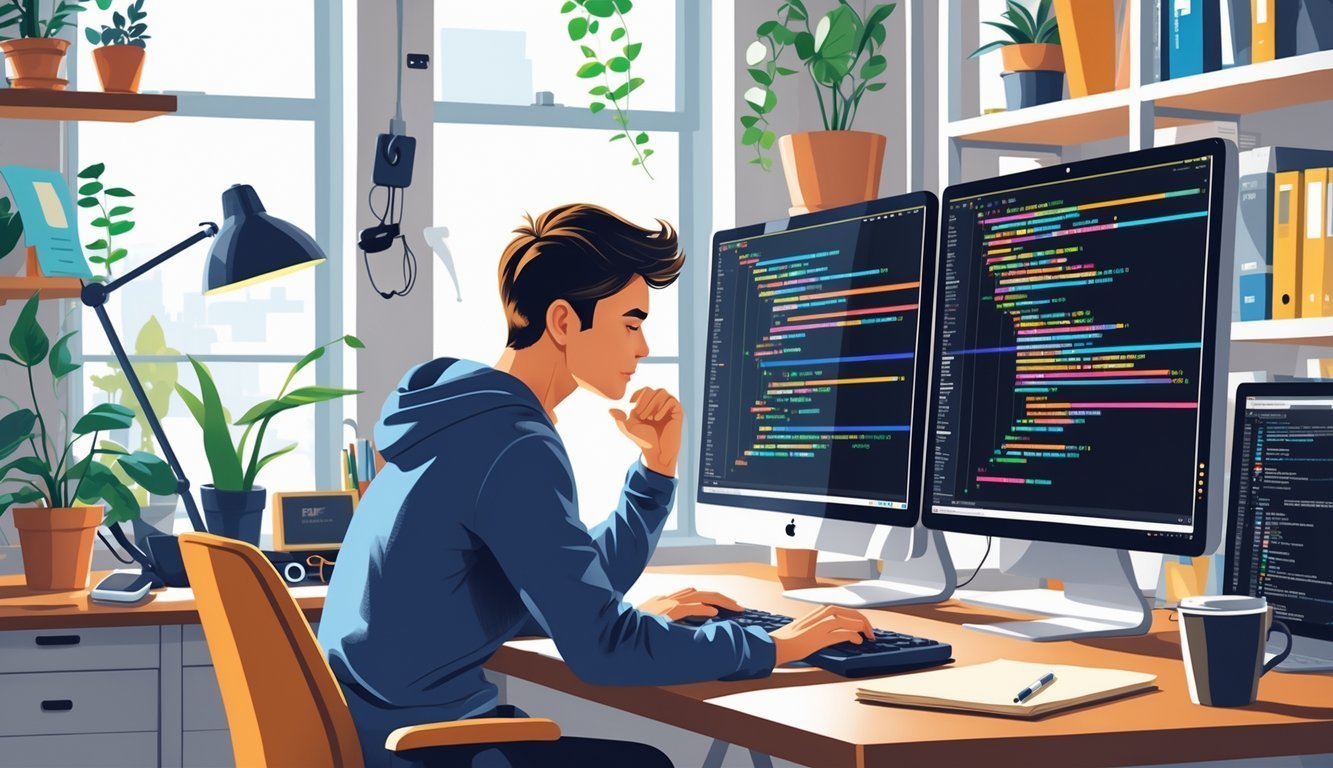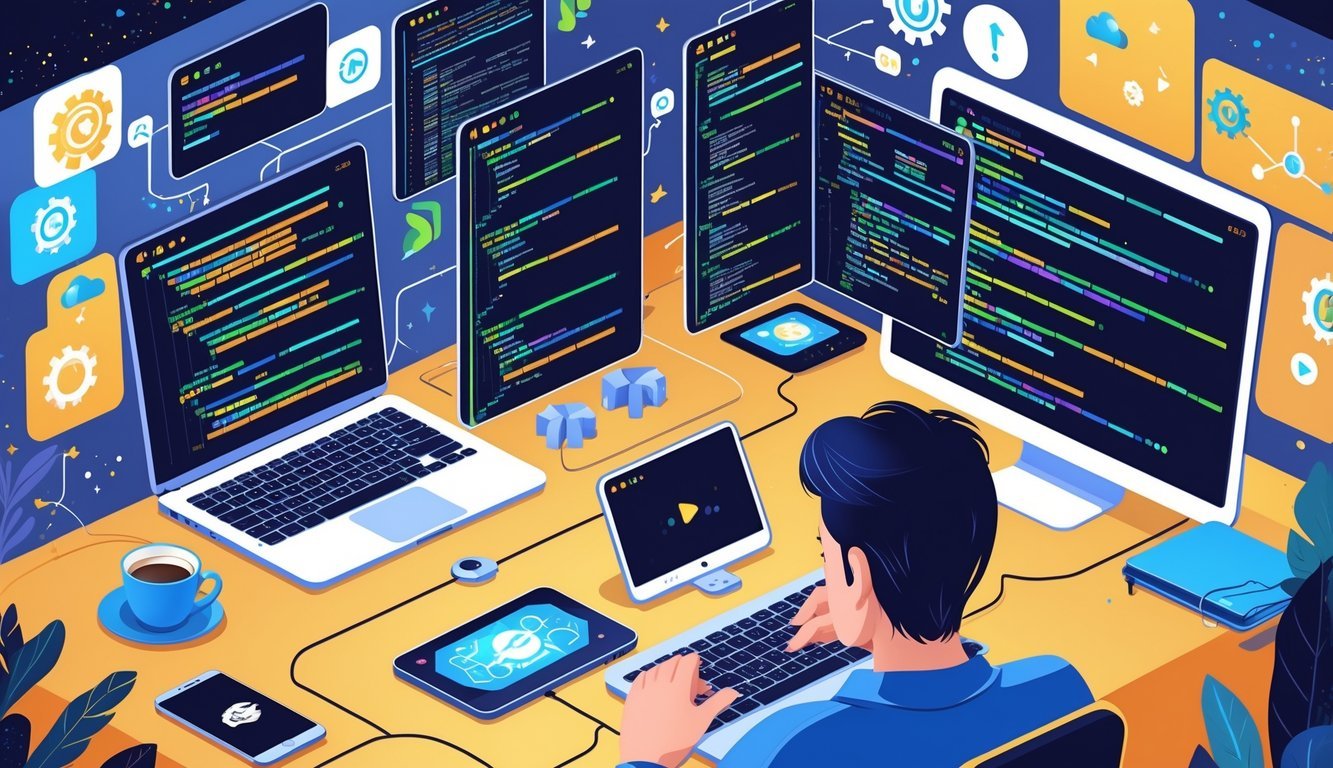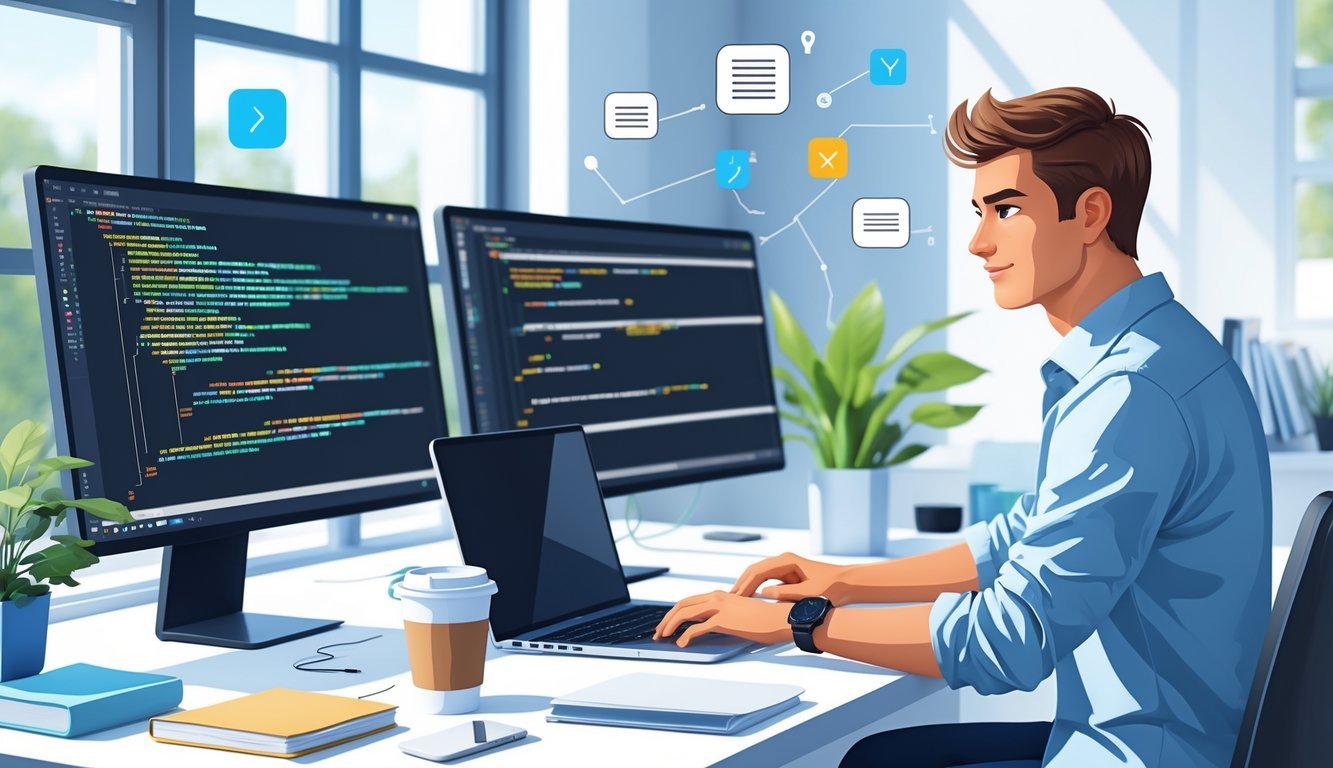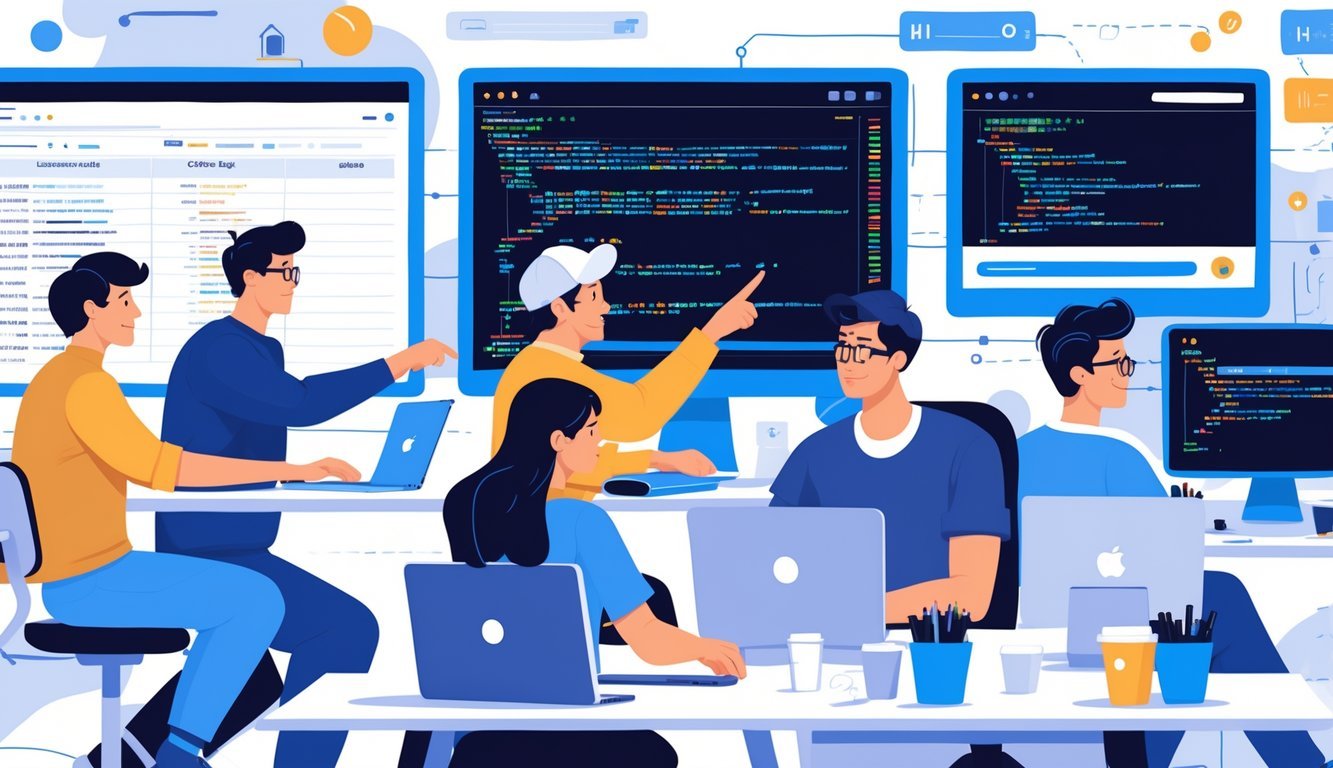PsychNewsDaily Publishers
100 Summit Drive
Burlington, MA, 01803
Telephone: (320) 349-2484
PsychNewsDaily Publishers
100 Summit Drive
Burlington, MA, 01803
Telephone: (320) 349-2484
Freelance coding and debugging provide flexible project-based work for developers, emphasizing problem-solving, strong analytical skills, and proficiency in popular programming languages like Java and Python.

Freelance coding and debugging let you work on coding projects and fix errors for clients on your own schedule. You can earn money by solving specific programming problems without committing to a full-time job.
This flexibility draws in lots of developers who want more control over their work and time.
The work can really vary, but being able to spot and fix bugs quickly makes a big difference. You’ll need to know your way around different programming languages and use debugging tools comfortably.
You don’t always have to understand the whole project. Instead, you focus on the problems your clients face and just fix what’s broken.
Starting out might feel a bit overwhelming, honestly. But if you build a solid profile and gain trust, more opportunities will come your way.
Most jobs involve small, focused tasks, which helps you build experience and steady income over time.

Freelance coding means you work on software projects solo, usually for different clients. You might build or fix apps or websites.
When something breaks, debugging helps you track down and solve bugs so the code actually works.
As a freelance programmer, you handle everything from writing code to testing it. You figure out what the client wants, build the software, and check if it runs without issues.
Debugging takes up a good chunk of your time since you need to hunt down errors and fix them.
You also talk with clients to update them and get their feedback. Managing your own time and projects matters because you don’t have a manager keeping you on track.
You decide when and how you work so you can deliver a solid final product.
To do well in freelance coding and debugging, you need strong analytical skills. This means breaking down problems into smaller pieces and figuring out what’s really causing the issue.
When you debug, these skills help you spot exactly where the code fails. You’ll test out different fixes and pick the one that actually works.
Logical thinking and patience come in handy, especially since some bugs can be stubborn.
Freelance programmers usually work with popular languages like Java, Python, JavaScript, C++, and PHP. These languages let you build all sorts of programs, from websites to mobile apps.
You might also work with MySQL to manage databases that store and organize your app’s data.
Knowing these tools helps you land more projects because lots of clients want software built with them.
Each language has its strengths:
Learning these technologies really boosts your chances as a freelance software engineer.

Getting into freelance coding and debugging means picking up the right skills and showing your work clearly. Make sure your projects are easy for everyone to use.
Managing your own time helps, and knowing about extra perks can make the job even better.
You don’t need a computer science degree to freelance, though it can help you understand programming more deeply. Coding bootcamps work too and teach you practical skills quickly.
Look for relevant certifications in programming languages or debugging tools. These show clients that you’re serious and skilled.
Strong written English helps you explain bugs and fixes clearly.
Take time to learn how web apps work, since that’ll make you better at spotting and fixing tricky errors. Keep your skills sharp with online courses or practice projects.
Focus your portfolio on web applications, since lots of freelance jobs want that. Build projects where you’ve fixed bugs or made improvements.
Add screenshots, live links, and short notes about what you solved. Show your coding process, but keep explanations simple and to the point.
Use platforms like GitHub to share your code with potential clients.
If you’ve worked on usability or accessibility issues, highlight those. Clients look for these skills because they show you care about user experience.
One of the biggest perks of freelancing is a flexible schedule. You can set your own hours and adjust when things get busy or slow.
This helps you balance work and life, which is honestly pretty nice.
Sometimes platforms or clients offer seasonal bonuses or extra pay during busy times. Keep track of your hours and earnings so you don’t miss out.
Set work blocks and breaks to stay focused. Staying organized lets you juggle multiple clients or projects without burning out.
When you fix code, always check if the web app works for everyone. Usability means the site feels easy and smooth.
Accessibility means people with disabilities can use your site too. Use tools to test if your site supports screen readers or keyboard navigation.
Write good comments and keep your code simple. This makes it easier for other developers to update your work later.
Always write clean, clear code—it saves you and others time down the road.
Clients notice when you follow these practices, and it helps you land more jobs.

You’ll figure out how to start freelancing in coding and what skills actually help you succeed. We’ll talk about income potential, where to find jobs, and ways to get better at debugging too.
Start by picking a programming language you feel comfortable with. Build a portfolio with small projects or contributions to show off your skills.
Sign up on freelance platforms like Upwork or Freelancer to find your first gigs. Networking with other developers can help you find work, too.
Languages like JavaScript, Python, and Java are really popular right now. Knowing frameworks like React or Django is a plus.
Understanding databases and version control tools like Git is important. You’ll also want strong problem-solving skills.
Yes, plenty of freelancers earn well, but your income depends on your skills, experience, and the projects you choose.
Rates change based on project type and client. As you specialize and build your reputation, you can boost your earnings.
Try platforms like Upwork, Fiverr, Toptal, and Freelancer. Tech forums and job boards post freelance gigs too.
You can also reach out to businesses or join online communities to find freelance work.
Freelance rates go all over the place, from about $20 to $100+ per hour depending on your experience and skills.
Beginners usually start with lower rates and raise them as they get more positive reviews and expertise.
Take time to really read error messages, even if they’re confusing at first. Try out the debugging tools built into your coding environment—they’re there for a reason.
Jump into different kinds of projects. You’ll run into all sorts of weird bugs that way, and honestly, that’s how you get better.
Pick up some systematic debugging habits. They might feel slow at first, but they’ll save you time and frustration down the road.